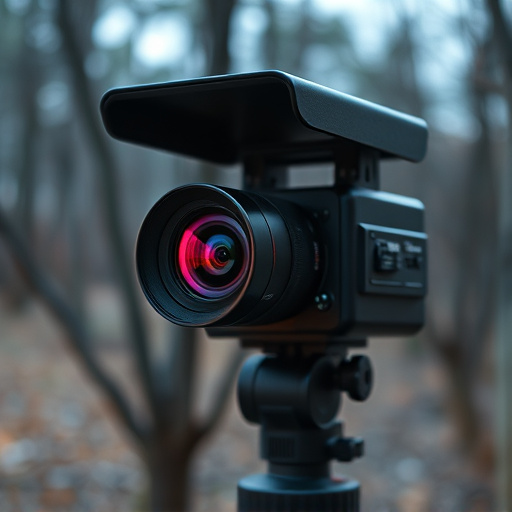The use of hidden recording devices, especially in private homes, is heavily regulated by varying laws globally, emphasizing consent and privacy protection. These "Laws Regarding Secret Nanny Cameras" strictly prohibit unauthorized covert recordings, with penalties including fines and imprisonment. Understanding these laws is crucial for parents and caregivers considering surveillance to avoid legal issues and maintain ethical practices within diverse regional frameworks.
Hidden recording devices pose complex challenges in the realm of privacy, prompting a deep dive into the intricate web of laws regarding secret nanny cameras and related technologies. This article navigates the legal landscape of these devices, exploring regional variations in regulations that govern their use. We delve into advanced signal scanning methods employed to detect hidden cameras and audio recorders, from heat sensors to RF detectors. Additionally, we explore practical applications, ethical considerations, and best practices for the responsible and legal utilization of signal scanning technology in today’s digital era.
- Understanding the Legal Landscape
- – Overview of privacy laws and regulations related to hidden recording devices
- – Variations in laws across different regions and their implications
Understanding the Legal Landscape
In many jurisdictions, the use of hidden recording devices, particularly in private residential settings like homes and nurseries, is governed by strict laws regarding secret nanny cameras. These legal frameworks are designed to protect privacy rights and ensure ethical surveillance practices. The specific regulations can vary significantly from one country to another and even between states or provinces within the same nation. Generally, any form of covert audio or visual recording in a space where individuals reasonably expect privacy is prohibited without explicit consent.
Understanding the laws regarding secret nanny cameras is crucial for anyone considering such surveillance methods. Civil liberties groups and legal experts advocate for transparency and consent as fundamental principles in the use of hidden recording devices. Parents or caregivers who wish to monitor nannies or other employees should consult local laws, ensuring they have a legitimate reason and obtain proper authorization before setting up any secret cameras. Non-compliance can result in severe penalties, including fines and legal action.
– Overview of privacy laws and regulations related to hidden recording devices
The use of hidden recording devices, often referred to as secret nanny cameras, raises significant privacy concerns and is subject to strict legal frameworks. Privacy laws worldwide are designed to protect individuals from unwarranted surveillance, ensuring their right to privacy in various settings, including homes, workplaces, and public spaces. These laws vary across jurisdictions but generally require explicit consent for recording or monitoring activities.
When it comes to hidden cameras, the Laws Regarding Secret Nanny Cameras often have specific provisions. In many countries, installing such devices without consent is a criminal offense, with penalties varying from fines to imprisonment. Individuals or organizations found guilty of illegal surveillance may also face civil lawsuits for invasion of privacy. Understanding and adhering to these regulations are essential to avoid legal repercussions and maintain the integrity of personal and professional relationships.
– Variations in laws across different regions and their implications
The Laws Regarding Secret Nanny Cameras vary significantly across different regions, creating a complex landscape for individuals seeking to protect their privacy or employ such devices for monitoring purposes. In some jurisdictions, any form of hidden recording is strictly prohibited unless all parties involved are informed and consent to the surveillance. These stringent rules are designed to safeguard individual rights and prevent unwarranted intrusion into personal spaces. Conversely, other regions have more lenient regulations, allowing for limited use of secret cameras under specific conditions, such as in domestic settings or with explicit permission from those being recorded.
These variations have significant implications for both users and law enforcement. On one hand, strict laws can deter potential misuse but may also hinder legitimate efforts to prevent crime or protect vulnerable individuals. Conversely, lenient regulations could enable increased surveillance, raising ethical concerns about privacy invasion. Understanding the Laws Regarding Secret Nanny Cameras is therefore crucial for anyone considering their use, as it dictates legal boundaries and ensures compliance while navigating the complexities of differing regional legal frameworks.
In conclusion, understanding the legal landscape surrounding hidden recording devices, particularly secret nanny cameras, is paramount. The variation in regional laws underscores the need for careful consideration and due diligence. As technology advances, so too do privacy concerns, making it crucial for individuals to stay informed about their rights and responsibilities. By staying compliant with relevant regulations, users can ensure ethical deployment of these devices while respecting personal privacy.
